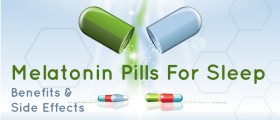
Gaviscon is a medicine which belongs to the group of antacids, which means that it is used for the treatment of problems of the gastrointestinal system, such as heartburn, peptic ulcer, acid ingestion, hiatal hernia and also reflux esophagitis. It is also used in order to prevent ulcers as well as the bleeding from ulcers. Since there are some side effects which can occur when using this drug, in order to prevent them, or at least in order to reduce the possibility of their appearance to minimum, the patients should inform their doctor about their medical condition and whether or not they have some other problems related to the kidneys or liver. It is important to say if they have appendicitis, or if they are allergic to minerals such as aluminum and magnesium, since they are the main ingredients of Gaviscon.
Also, since this medicine may lead to serious side effects if combined with certain other medicines, the use of some other drug or even a simple vitamin or supplement, should also be reported before taking Gaviscon. Some other medicines may influence the absorption of this medicine, and vice versa, this medicine may influence the absorption of some other medicine. Just like with any other medicine, pregnant and breastfeeding women should inform their doctors about their condition, because it is not known yet whether or not Gaviscon may cause the damage to the unborn baby or breastfed baby. Children under the age of 6 are not recommended to use Gaviscon, as well as older people who suffer from Alzheimer’s disease.
If taken as prescribed, Gaviscon rarely causes side effects, especially any serious ones. However, it is possible to experience dizziness, sleepiness, vomiting or nausea, which is why people who take it are suggested not to drive until they stop using it. On the other side, the side effects which do require medical attention are also rare, but patients should be informed about them as well. Some of them are related to the accumulation of aluminum, which may result in speech disorders, dysphasia, tremor, seizures, and in extreme cases, even death. The accumulation of aluminum may also result in arthropathy, hyadrarthrosis, or osteomalacia, which is characterized by the muscular weakness and bone fractures. However, these side effects are more typical in cases where this medicine has been used over a longer period of time or in cases where patients have overdoses so the concentration of aluminum in their body has increased.

















Your thoughts on this
Loading...